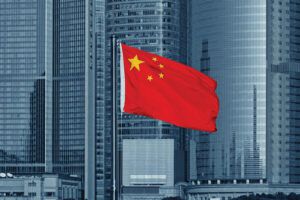As China reopens, renewable industry prospects are enticing investors, but human rights concerns and geopolitical tensions remain.
For Amati Global Investors CEO Paul Jourdan, investing in China as a westerner would seem “very tone deaf to what’s happening around the world”.
“You have massive slave labour issues in China, you have huge human rights issues,” he said.
The Business & Human Rights Resource Centre logged 679 charges of human rights abuse against Chinese companies operating abroad between 2013 and 2020, with the metals and mining industries drawing most allegations.
“You’ve also got the issue that at any point the state might just shut you down and so people in businesses would be very circumspect about what they complained about. I just think there’s other ways to make money,” Jourdan said.
See also from ESG Clarity EU: – Amati CEO: ‘I don’t want to make money out of other people’s blood’ – ESG Clarity
Amati Global Investors uses a human rights framework based on the two covenants in the International Bill of Human Rights and uses Freedom House analysis to preclude natural resource project investments in countries where the level of freedom falls below a very low bar.
China, Jourdan said, has a level of freedom that is “so low” that it will probably make for “very bad investments”.
Another reason the CEO said China might make for bad investments is because of direction the wind is blowing in terms of policy interventions.
The Financial Times last week reported the US tightened its foreign investment screening regime through a 2018 law enacted by former president Donald Trump amid growing concern in Washington that some Chinese investments posed a threat to national security.
“The strategic geopolitical friction between the US and China has extended from trade and technology to the military [and] Taiwan has become the geopolitical flashpoint of the ongoing power competition between the world’s two largest economies,” Western Asset Management’s Desmond Soon, head of investment management, Asia (ex-Japan) and portfolio manager, and Jie Peng, research analyst, said.
“Further deterioration of the already frigid US-China relationship could result in significant adverse financial market reactions and dislocations.”
For others operating in the region though, China’s renewable prospects present investment opportunities. “China has many firms that will play a global role in the shift towards renewable energy,” Sharukh Malik, portfolio manager at Guinness Global Investors, told ESG Clarity at the start of this year.
“Across the entire solar and wind industries, there are several leading Chinese firms. Electric vehicles are another important part of the solution and again the Chinese have footholds across the supply chain, ranging from resource extraction, processing, production equipment as well as final assembly. China is critical in this energy transition.”
